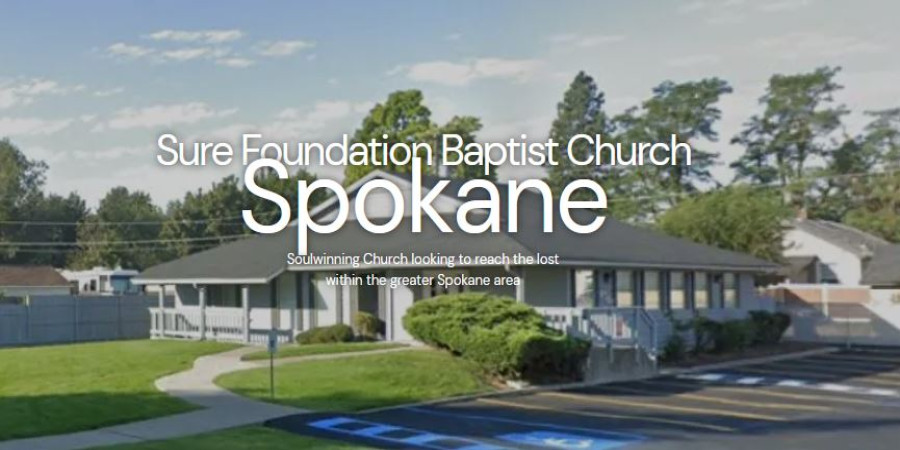

Examining Sure Foundation Baptist Church of Spokane: Beliefs, Controversies, and Community Response
Sure Foundation Baptist Church (SFBC) in Spokane, Washington, is recognized for its adherence to a fundamentalist Christian ideology and has become a source of significant controversy. The church's staunch anti-LGBTQ+ stance, the use of inflammatory language by its leaders, and its association with the New Independent Fundamentalist Baptist (NIFB) movement have drawn both criticism and support. This article explores the SFBC's beliefs, the controversies surrounding them, and the responses elicited within the Spokane community.
Beliefs and Affiliation
Sure Foundation Baptist Church identifies as an Independent Fundamentalist Baptist church. Key tenets of this strain of Christianity include:
- Biblical Inerrancy: The belief that the Bible is the literal, inerrant, and infallible word of God.
- Strict Moral Code They uphold a strict moral code often condemning homosexuality, abortion, premarital sex, and embrace traditional gender roles.
- Separationism: A belief in separation from other Christian denominations perceived as less theologically strict, as well as from secular institutions.
- NIFB Affiliation: SFBC belongs to the New Independent Fundamentalist Baptist movement, founded by controversial preacher Steven Anderson. NIFB churches frequently espouse extreme interpretations of the Bible and engage in hateful rhetoric.
Controversies and Criticisms
The SFBC in Spokane, particularly Pastor Danil Kutsar, has drawn significant criticism for:
- Anti-LGBTQ+ Rhetoric: The church and its leaders preach vehemently against homosexuality, transgender individuals, and the LGBTQ+ community as a whole. Critics condemn such rhetoric as bigoted and harmful.
- Condoning Violence: SFBC leaders have voiced support for the death penalty for homosexuality, which many see as promoting violence against marginalized groups.
- Antisemitism: Some sermons reference antisemitic tropes and conspiracy theories, furthering a climate of hate.
Response from the Spokane Community
SFBC's presence in Spokane has generated a strong response from the community:
- Condemnation: Religious leaders, human rights organizations, and members of the LGBTQ+ community have publicly denounced the church's views and their harmful impact.
- Protests: Peaceful demonstrations have taken place outside the church, advocating for tolerance and inclusivity.
- Countering Hate with Hope: Spokane community groups have organized events promoting love, acceptance, and support for marginalized individuals.
The Southern Poverty Law Center Designation
The Southern Poverty Law Center (SPLC) designates the NIFB movement, including the Sure Foundation Baptist Church system, as a hate group. The SPLC tracks extremist organizations and cites SFBC's demonization of LGBTQ+ people as the basis for the designation.
The Importance of Critical Examination
Understanding the beliefs and actions of controversial groups like SFBC is crucial for promoting informed dialogue and countering harmful ideologies. While religious freedom is a fundamental right, it is essential to distinguish between the right to hold beliefs and the use of those beliefs to incite hatred or discrimination.
References
- Sure Foundation Baptist Church (SFBC Spokane) Website
- The Spokesman-Review: Spokane pastor's anti-trans speech condemned by religious leaders after going viral
- Southern Poverty Law Center (SPLC)
- LGBTQ+ Community Resources in Spokane:
Conclusion
The case of Sure Foundation Baptist Church in Spokane exemplifies the complexities of religious freedom and the social consequences of extreme ideologies. The community's strong response demonstrates a commitment to confronting hate with inclusivity and creating a welcoming environment for all individuals in Spokane. It underscores the importance of ongoing dialogue, education, and standing for human rights.
Popular articles

Apr 11, 2024 07:40 PM

May 25, 2024 08:09 PM

Apr 11, 2024 07:22 PM

Apr 10, 2024 07:59 PM

Mar 14, 2024 07:53 PM
Comments (0)